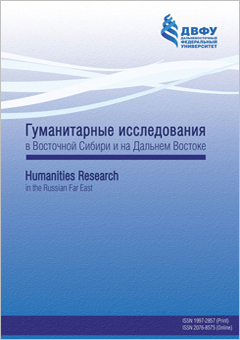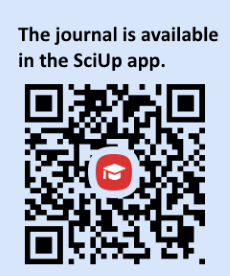Implementing public engagement in scientific research within the open science paradigm: evidence from biomedical studies
DOI:
https://doi.org/10.24866/1997-2857/2025-3/108-117Keywords:
open science, bioethics, crowdsourcing, engagement, ethics committees, biomedical researchAbstract
The article examines current issues of public engagement in biomedical research within the context of the modern open science paradigm. It analyzes the role of bio-ethics as a practice-oriented tool for the humanistic stewardship of scientific activity, promoting adherence to the principles of transparency, accessibility, and reproducibility of knowledge. Particular attention is paid to the distinctions between crowdsourcing and community engagement, highlighting their methodological and terminological specifics. The author identifies key barriers to public involvement in research – inclu-ding financial, legal, socio-cultural, and educational obstacles – and proposes mechanisms to overcome them, such as the activities of community advisory boards, organized crowdsourcing practices, and enhancing the role of ethics committees. The conclusion emphasizes the necessity of integrating bioethical principles into research practices, fostering interdisciplinary dialogue, and adapting international guidelines to national contexts to ensure a responsible and socially-oriented scientific process.
Downloads
References
1. Бэйкер Д. Инновация модели бизнеса через «краудсорсинг» с использованием социально-сетевых платформ // Проблемы управления в социальных системах. 2012. Т. 4. № 6. С. 87–99.
2. Волчкевич Т.Я., Скуратович А.Л. Краудсорсинг как социальная инновация // Актуальные научные исследования в современном мире. 2016. № 11. Ч. 2. С. 55–59.
3. Кудайбергенова Т.А. и др. Этические основания взаимодействия с местными сообществами в обеспечении готовности к чрезвычайным ситуациям в общественном здравоохранении // Здравоохранение Кыргызстана. 2023. № 2. С. 49–57.
4. Масланов Е.В. Краудсорсинг в науке: новый элемент научной инфраструктуры // Философия науки и техники. 2018. Т. 23. № 1. С. 141–155.
5. Международные этические руководящие принципы для исследований в области здоровья с участием людей. Женева, 2016 // Council for International Organizations Of Medical Sciences. URL: https://cioms.ch/wp-content/uloads/2019/01/3-027-cioms-ethicalguidelinesrussianlayout2019-1.pdf
6. Сокольчик В.Н. Открытая наука как новая парадигма научных исследований: проблемы и перспективы (на примере биомедицинских исследований) // Труды Белорусского государственного технологического университета. Серия 6: История, философия. 2023. № 1. С. 163–169.
7. Bekbergenova, Zh. et al., 2019. Activities of the local bioethical committee of the Republic of Kazakhstan. European Journal of Public Health, Vol. 27, no. suppl_3. URL: https://doi.org/10.1093/eurpub/ckx186.094
8. Crowdsourcing in health and health research: a practical guide. 2018 // World Health Organization. URL: https://iris.who.int/bitstream/handle/10665/27-3039/tdr-stra-18.4-eng.pdf
9. Green, L.W. and Mercer, S.L., 2001. Can public health researchers and agencies reconcile the push from funding bodies and the pull from communities? American Journal of Public Health, Vol. 91, no. 12, pp. 1926–1929.
10. Han, H.R. et al., 2021. Exploring community engaged research experiences and preferences: a multi-level qualitative investigation. Research Involvement and Engagement, Vol. 7, no. 1. URL: https://doi.org/10.1186/s40900-021-00261-6
11. Howe, J., 2006. Crowdsourcing: a definition. URL: http://crowdsourcing.typepad.com/cs/2006/06/-crowdsourcing_a.html
12. McKee, M. et al., 2024. Trust: The foundation of health systems. URL: https://iris.who.int/bitstream/handle/10665/379318/9789289059992-eng.pdf
13. Ntabe, A.C., 2020. Rethinking the practice of community engagement in health research: the case of the tenofovir trials in Cambodia and Cameroon. Research project submitted in partial fulfilment of the requirements for the Master of Social Science. University of KwaZulu-Natal. URL: https://core.ac.uk/download/pdf/304374342.pdf
14. Potter, V.R., 1988. Global bioethics: Building on the Leopold legacy. East Lansing: Michigan State University Press.
15. Principles of community engagement. 2nd ed. URL: https://www.atsdr.cdc.gov/community-stress-resource-center/php/resources/principles-of-community-engagement2.html
16. Sokolchik, V. et al., 2023. The social model for research ethics committees regarding engaging communities in health research in Eastern Europe and Central Asian countries (based on tb-related research). Clinical Trials and Case Studies, Vol. 3, no. 1. URL https://clinicsearchonline.org/uploads/articles/1703672123ctcs-23-cr-045-galley_proof.pdf
17. Tindana, P.O., De Vries, J. and Kamuya, D., 2020. Ethical challenges in community engagement practices in research during the COVID-19 pandemic in Africa. AAS Open Research, Vol. 3. URL: https://openresearchafrica.org/articles/3-23
18. Van Niekerk, L. et al., 2020. Crowdsourcing to identify social innovation initiatives in health in low- and middle-income countries. Infectious Diseases of Poverty, Vol. 9. URL: https://doi.org/10.1186/s40249-020-00751-x
Downloads
Published
Issue
Section
License
Copyright (c) 2025 Валерия Николаевна СОКОЛЬЧИК

This work is licensed under a Creative Commons Attribution-NonCommercial-NoDerivatives 4.0 International License.















